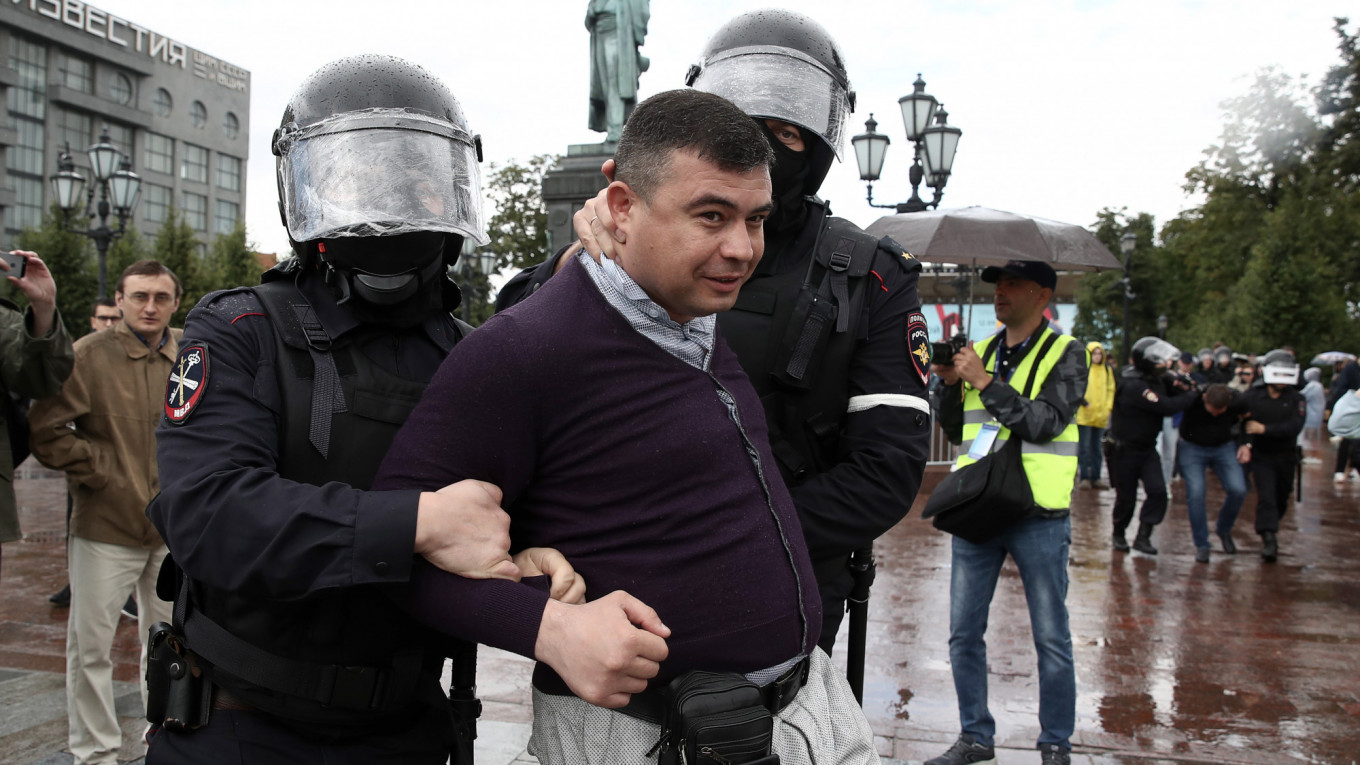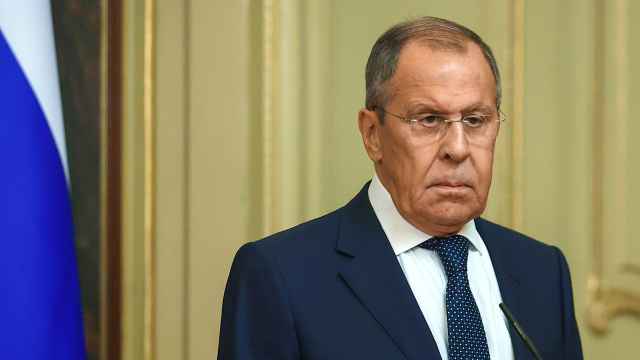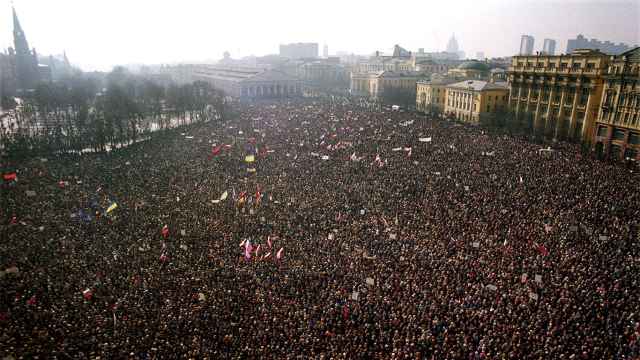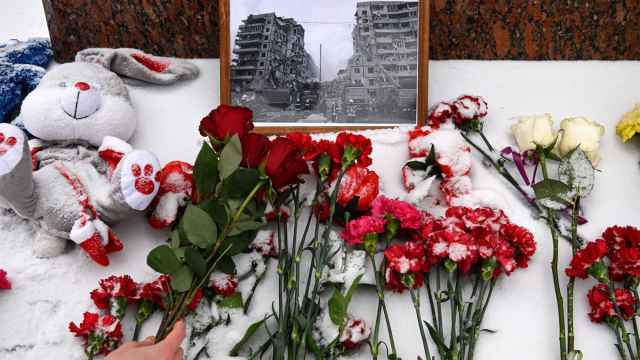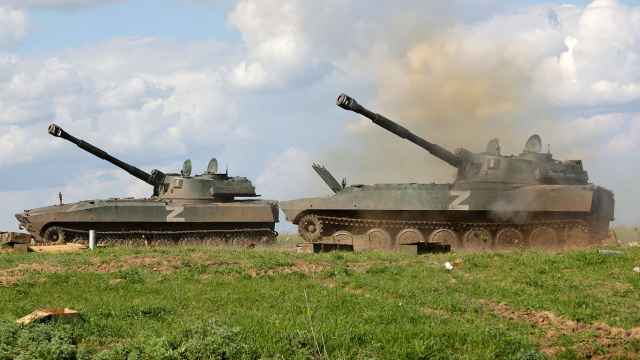Russian police forcibly detained 1001 people attending a protest in Moscow on Saturday to demand free elections, including prominent activist Lyubov Sobol, after authorities warned the demonstration was illegal.
Police removed Sobol, an ally of jailed opposition politician Alexei Navalny, from a taxi and bundled her into a van minutes before the start of what anti-Kremlin activists described as a peaceful walk to protest against the exclusion of their candidates from an election next month.
In another blow to Navalny, Russian investigators opened a criminal investigation into the alleged laundering of 1 billion rubles ($15.3 million) by his anti-corruption foundation. Navalny and his allies say the foundation, which has published a slew of embarrassing investigations into government officials, is transparently financed from public donations.
OVD-Info, an independent monitoring group, said police had detained 1,001 people in Moscow on Saturday, in some cases beating them with truncheons as they lay on the floor. Reuters reporters witnessed dozens of arrests. In one case police carried off a man as he clung upside down to his bicycle.
Police said they had detained 600 and that 1,500 had attended the protest, though footage of demonstrations which flared in different parts of Moscow suggested many more had taken part. Opposition activists later posted screen shots online of police reports suggesting around 10,000 had attended.
Saturday's protest was smaller than one a week earlier, but underlined the determination of some Kremlin critics — especially younger people — to keep pressing to open up Russia's tightly-choreographed political system.
Many but not all of those detained were later released by police, including Sobol who was fined 300,000 rubles ($4,596) for violating Russia's tough protest laws.
The focus of protesters' anger is a prohibition on a number of opposition-minded candidates, some of whom are allies of Navalny, from taking part in a September election for Moscow's city legislature.
That vote, though local, is seen as a dry run for a national parliamentary election in 2021.
Authorities say opposition candidates failed to collect enough genuine signatures to register. The excluded candidates say that is a lie and insist on taking part in a contest they believe they could win.
"They (the authorities) are wiping their feet on us," said Elena, a student attending Saturday's protest.
Another attendee, Yevgeny Snetkov, a 61-year-old engineer, described as brazen the way the authorities had prevented opposition candidates from running. "I had no option left but to protest," he said.
Some protesters chanted "Putin is a thief" as they marched.
International condemnation
Observers said the police presence was one of the biggest at such a protest in nearly a decade. Mobile internet access was cut in some areas and police cordoned off swathes of central Moscow to stop people gathering.
At a similar protest a week earlier, police detained more than 1,300 in one of the biggest security operations of recent years that brought wide international condemnation.
Authorities carried out a new round of detentions and home searches before Saturday's protest and opened criminal proceedings for what they term mass civil unrest, an offense which carries a penalty of up to 15 years in jail.
Activists say the Russian constitution allows them to freely protest. But authorities say they need to agree the timing and location of any demonstrations in advance, something that was not done ahead of Saturday's protest.
Opposition activists say the authorities have repeatedly refused to allow protests in central Moscow, leaving them with no choice but to go ahead anyway.
At least eight of Sobol's allies, including Navalny, are in jail for breaking protest laws. The ruling United Russia party dominates the national parliament and Navalny plus his allies are starved of media air-time.
President Vladimir Putin and the Kremlin have not commented on the standoff with the opposition, but Moscow prosecutors on Friday had warned would-be protesters that Saturday's demonstration had not been approved.
At well over 60 percent, Putin's approval rating is still high compared with many other world leaders, but is lower than it used to be due to discontent over years of falling incomes.
Last year the 66-year-old former KGB intelligence officer won a landslide re-election and a new six-year term until 2024.
A Message from The Moscow Times:
Dear readers,
We are facing unprecedented challenges. Russia's Prosecutor General's Office has designated The Moscow Times as an "undesirable" organization, criminalizing our work and putting our staff at risk of prosecution. This follows our earlier unjust labeling as a "foreign agent."
These actions are direct attempts to silence independent journalism in Russia. The authorities claim our work "discredits the decisions of the Russian leadership." We see things differently: we strive to provide accurate, unbiased reporting on Russia.
We, the journalists of The Moscow Times, refuse to be silenced. But to continue our work, we need your help.
Your support, no matter how small, makes a world of difference. If you can, please support us monthly starting from just $2. It's quick to set up, and every contribution makes a significant impact.
By supporting The Moscow Times, you're defending open, independent journalism in the face of repression. Thank you for standing with us.
Remind me later.


